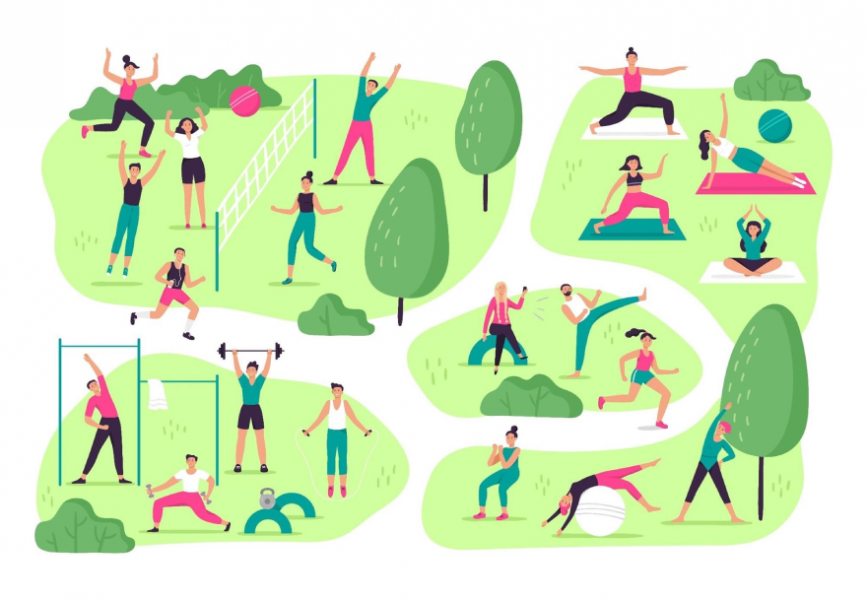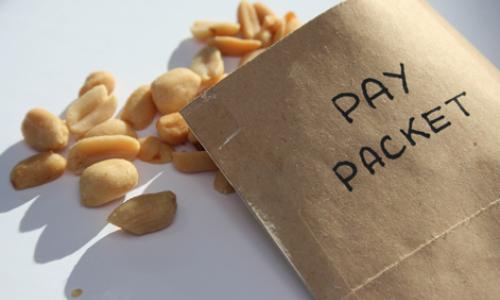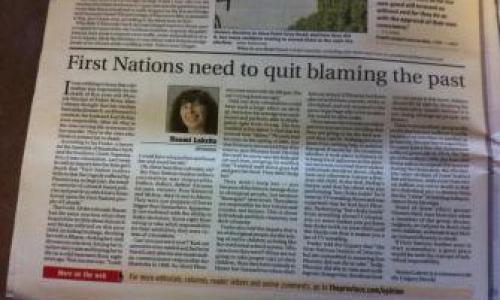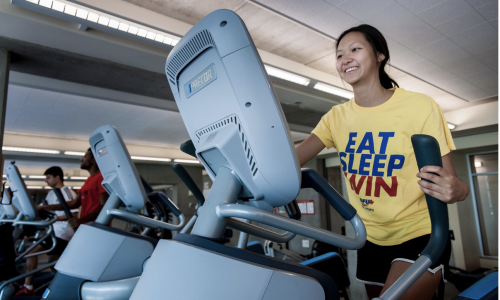
This blog was originally posted on the SFU Recreation site on August 5th, 2021.
We all have been told throughout our lives that fitness is important. But what does it really mean to be fit? The Merriam-Webster Dictionary defines being "fit" means being "sound physically and mentally." It is important to remember that being fit is not just about how you look on the outside, but is about how you feel, as well as your health in general. So being physically or mentally sound will look different for everyone!
It is important to work on all aspects of fitness to some extent so that you do not find yourself "fit" in one aspect but not others. What do we mean by this? Well, our whole body is composed of different parts, and these parts rely on each other and work together, so by neglecting certain types of fitness you may be neglecting your overall health. The more well-rounded of an approach you take, the stronger you will likely get in all aspects of your fitness. This is why we want to share the 5 components of fitness with you:
Sinicki defines cardiovascular endurance as your "body's ability to continue exertion while getting energy from the aerobic system." Basically, when you are running long distances or exercising over a longer period of time, you are relying heavily on oxygen, so your heart and lung health is very important. Have you ever gone on a hike and found yourself focusing on your breathing? Or noticed you were out of breath with your heart racing? This is related to your cardiovascular endurance, or what is referred to as your cardio.
Personally, I've struggled to exercise without feeling like my heart might explode or my lungs might give out! When I attempted the Grouse Grind I thought I would crush it, but I was so out of breath I could hardly speak and I was constantly taking breaks. Since I had strong muscles, I thought I was in the best shape of my life, but my cardio was lacking which held me back. As much as I loved hiking, I figured I just wasn't cut out for it and stopped, until I realized that cardiovascular endurance isn't just something you have or don't have, it takes work! So, if you've ever been out of breath exercising while others seem fine, getting dizzy spells from your heart racing so fast, or desperately want to walk up the stairs without wheezing, then these exercise suggestions are for you!
-
Distance Training: slow, long distance exercise.
-
Circuit Training: ladder drills, burpees, jumping jacks, etc.
-
Strength Training: weightlifting, body weight exercises, resistance exercises.
The key is to rotate between workouts so that you are maximizing your heart and lung capacity, make sure you switch it up from time to time!
Muscular strength is how much force you can exert on an object or how much weight you can lift over a short period of time. This is important because it allows us to do physical activity more easily with a reduced risk of injury. The benefits of muscular strength also extend to reduced fragility as we age.
Exercises to improve muscular strength include:
-
Lifting weights e.g squats, deadlifts, bench press
-
Resistance band training
-
Body weight exercises e.g lunges, squats, push ups and pull ups
Whether you play sports, have a physical job or just want to be able to open jars by yourself, physical strength is something we use everyday without realizing it and as such, improving it can make a large number of things easier. I found for myself when playing rugby, incorporating consistent weight training helped advance my game and my incidence of injury radically reduced.
Muscular endurance is important as it allows you to continue to participate in physical activities longer. Muscle endurance is very muscle group focused, meaning you develop muscle endurance in some muscles but not others. An example of this would be leg muscles for cyclists as they are constantly having to push the pedals. Cyclists have great leg endurance but not necessarily great endurance in their shoulder muscles unlike someone who is a disc or shot put thrower in track and field.
Some exercise to help build certain muscle endurance include:
-
Plank for your core/abdomen
-
Biking for legs or running to target large groups of muscles
-
Push-ups to target large percentage of your upper body
It is important to develop your muscle endurance that is specific to your fitness goals. For example, I play soccer, so I keep up my muscle endurance in my legs by doing exercises like running, jump squats, lunges. All of these are specific to my sport and my goal in fitness. I need to stay lean and not get too bulky while still getting stronger. I have found these exercises to be beneficial within my fitness goals.
Flexibility refers to your range of motion and can affect your balance, coordination and agility. Your flexibility is based around your joints. For example, you may have flexible hamstrings but tight and inflexible neck or shoulders. Keeping flexible is super important while aging as it helps with daily lives and maintaining a healthy lifestyle.
Some exercises to help improve flexibility include:
-
Workouts that include dynamic stretching ie. Yoga or Pilates
-
Stretching before and after workouts
-
When working out make sure you are doing the movement correctly
Make sure when you are stretching you only go to your limit; you should not be in any pain.
Flexibility is super important in your daily life, from reaching up or down to grab an item or going for a run without having tight muscles. A great way to start with some basic yoga is to check out SFU Recreation's yoga classes. Not only does it allow you to work on your flexibility but also encourages relaxation. I personally love a good yoga session and it allows my body a little reset before the next day in the gym.
Body composition is the separation of the body into individual components such as fat, muscle mass, bones tissue and water. It is used in conjunction with body weight to determine. Body composition can be measured in a variety of ways including skinfold calipers, Bodpod with the DEXA scan being the most accurate method we have.
To improve our body composition we need to lose fat whilst maintaining or gaining muscle mass. To do this we have to adhere to a high protein diet whilst also restricting calories so as not to be in a surplus. The benefit of being a beginner to the gym or returning after a long hiatus from fitness is that this process is easier than for intermediates and advanced lifters.
-
Resistance training
-
HIIT or steady state cardio
Positive changes to body composition can reduce the chances of Type 2 Diabetes as well as heart disease. After improving my body composition, I had better mobility and felt overall healthier.
Knowing how to work on our fitness can be challenging, especially when you see so many people out there doing all kinds of different workouts. How do you decide if you should focus on cardio, weightlifting, endurance, flexibility, or other types of exercise?! The answer is simple: you don't. It is important to have a well-rounded fitness routine, in order to create a better overall fitness experience. Try something new and try to include all 5 components of fitness into your workout schedule, including cardiovascular endurance, muscular strength, muscular endurance, flexibility and body composition.
Piece written by Audrey Heath, Kiarrah Pinkney, Tapiwanshe Samkange, and Sarah Sandrel.














